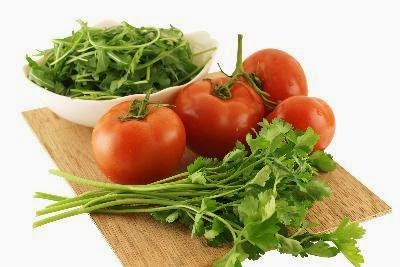I got quite a response from
the last post, thank you for paying attention. But, just as you think
that's all there is to it, here's more.
Do
you know that we have been eating the wrong way? Our typical meal would
probably start with soup or salad, or bread and butter, then we'd have
meat, carbohydrates, maybe a side dish. We would gobble this up with a drink,
then dessert, possibly with tea or coffee. Everyone eats sandwiches.
All
diseases start with a digestive system that's taxed and overworked. We
can help our guts by properly combining foods and giving our stomachs
the time to properly absorb and digest our food so it translates into
nutrients.
We describe
harrowing experiences as gut-wrenching, we feel "butterflies" in our
tummy
when we're in love, certain situations make us feel nauseous. We seek
comfort food when we're stressed. Embedded in the wall of the gut is the
Enteric Nervous System (ENS) which is referred to as the second brain,
it shares many features with the brain in your head. It acts
autonomously and influences behaviour by sending messages to the brain.
It can work both independently of and in conjunction with the brain in
your head, this is your gut "thinking" , the ENS helps you sense
environmental threats for instance, then influences your response. This
little brain in part determines our mental state and plays key roles in
developing diseases throughout the body. It makes sense therefore that
we treat it with respect. We need four processes to achieve nutrition,
these are digestion, absorption, assimilation, and, elimination.
If
the food you eat is not digesting properly, you get gas, flatulence,
heartburn, and upset stomach. The poor digestion
can contribute to malnutrition. We have been improperly combining our
foods, gastrointestinal problems abound, but we still eat the same way.
The discomfort we feel after meals, and " food allergies" can be
attributed to improper food combining. Food combination takes into
account the complexity of digestion of each food, to ensure it goes
through your entire system with ease. The three primary categories of
food namely proteins, carbohydrates, and fats require different
processes of digestion. Fruits generally pass through your system with
ease but starches require three levels of breakdown, starting in your
mouth when you chew. Proteins, begin their digestion chemically in our
stomachs. When you put in a smorgasbord of food groups, the digestive
system goes on overdrive, food that is waiting to be digested, stays and rots
inside your tummy and cause all sorts of problems which we remedy with
pills or "tums". So here are the three basic commandments of food
combination according to Dr. Wayne Pickering, a naturopathic physician
from Florida who is an expert on food combining.
1. No
proteins and starches at the same meal. They neutralise each other and
prevent proper digestion of either food. Wait two hours after eating a
starch before eating a protein, and wait three hours after eating a
protein before eating a starch. No buns with your burger, and no
sandwiches, meat and potatoes no more, no meatballs on spaghetti.
2. No
fruits and vegetables at the same meal. Fruits are either a single or
double sugar, whereas the starches are a triple sugar. Fruits
mechanically break down in your stomach, but chemically, they don't
break down until they reach the third and fourth stage of your digestive
system, which are in your small intestine. Starches are broken down in
three stages, starting in your mouth. This is also why it's crucial not
to eat dessert after a meal. It gets trapped in your stomach with
all that other food. Eat fruit 30-60 minutes before dinner.
Fruit-vegetables like tomatoes, eggplant, zucchini, okra, bell peppers
are ok to combine with other vegetables.
3. Eat melon alone. They do not digest well with other foods and will frequently cause problems unless consumed by itself.
Proteins
and carbohydrates should never be combined. Eat fruits by themselves.
Fats inhibit the digestion of protein, if you must have it with protein,
off set the inhibiting effect on digestion by eating it with a mixed
vegetable salad. If we don't combine properly, food is stopped from
converting into nutrients. We produce harmful toxins that poisons the
cells and tissues of our bodies and our organs of elimination. Improper
combining for a prolonged period of time wears the body down and lead to
serious diseases. If we spend less energy digesting our food, we absorb
more of the nutrients from them.
When
you eat
matters too, eat least concentrated foods, in the greatest amount in
the morning, fruit is an ideal choice, but not a fruit salad, one kind
at a time. More complex foods, but in smaller amount is good to take
midday, like carbs, the most concentrated foods, like protein, taken in
the evening.
Drink water
before and after your meals, not during. Ideally, drink water 30 minutes
before and 2 hours after, this will aid in digestion and it will stop
bloating. Water dilutes the digestive juices. Drink water when you awake
to help activate your internal organs and to remove any toxins before
your first meal of the day.
Regular
colonics and coffee enemas would help with elimination of toxins,
schedule a colonic with a trained practitioner. Search the Gerson coffee
enema, you can do this yourself at home.
It's not just the food we put in but how and when we eat them that we can achieve optimal health. To fully understand how we can
nourish ourselves, we have to understand the amazing system it thrives on. Let's treat it well. Keep your guts happy!
Watch this interview with Dr. Mercola. You can search charts and printable guides online on food combining.

